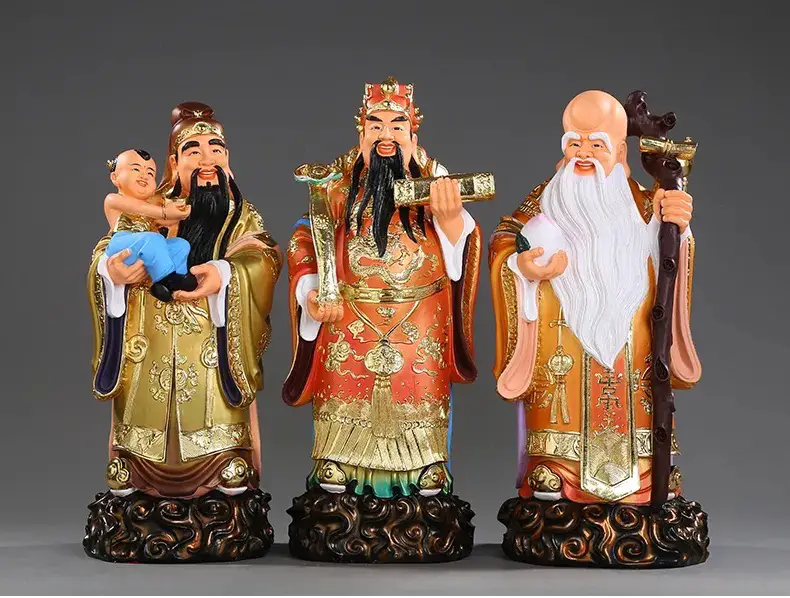Numerous homes around China contain statues of gods displayed in different areas. The Chinese believe that each god represents something. Today, we will focus on the 3 Chinese gods and help you understand what they represent and their order. Read on to find out more!
Who are the three gods of China?

The three gods of China are referred to as Fu Lu Shou. He is the Chinese god of life. These three gods in this culture are Fuxing, Shouxing, and Luxing. Their unique representation as three bearded men comes from the Ming dynasty when the gods were represented in human form.
People who are into Feng Shui believe these gods are lucky symbols that one should have since they can enhance health, prosperity, and good fortune. Fuxing is believed to symbolize happiness and blessings due to good fortune. In ancient China, Fuxing was considered the human form of a star that controlled agriculture.
On the other hand, Luxing is believed to be the god of prosperity. Luxing was honored as a deity with the power to make people happy through promotions or increased salaries.
Who is shouXing god?-star of longevity
This is the third god of China that is widely honored. According to Chinese Astronomy, this star is believed to determine the time of an individual’s death. Shouxing was also called the Old Man of the South Pole.
People believe that he was carried in his mother’s womb for 10 years before being delivered and came to the world as an old man. That is why artistic representations depict this god of China as a bearded old man with a crooked staff and a high brow. In one of his hands, he holds the peach of immortality. Artistic representations also add a turtle to this Chinese god to symbolize longevity.
What is the order of the 3 Chinese gods?
The three Chinese gods should stand from right to left. They are arranged in the same way Chinese letters must be written from right to left. Therefore, on the far right should be Fu, followed by Lu at the center, and then Shou at the far left. This order corresponds with what the Chinese gods represent. People believe that fortune, prosperity, and longevity are the attributes that depict a good life.
Feng shui also dictates rules for how these three Chinese gods should be placed to work in one’s favor. For instance, if you want to add these statues to your home, you should position them in a place of high energy following the right-to-left order. You must also place them on a high shelf since they are gods.
Conclusion
Also known as the three wise gods, Fu, Lu, and Shou are common in temples, shrines, people’s homes, and places of business. These beautifully painted statues of gods are essential in Chinese mythology and astrology. Fuxing is believed to bring good fortune, while Luxing is the god of prosperity. Lastly, Shouxing is associated with longevity.